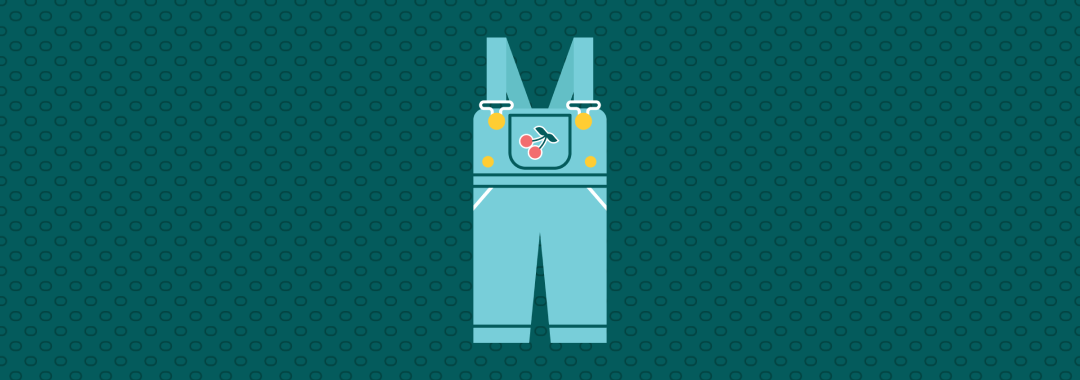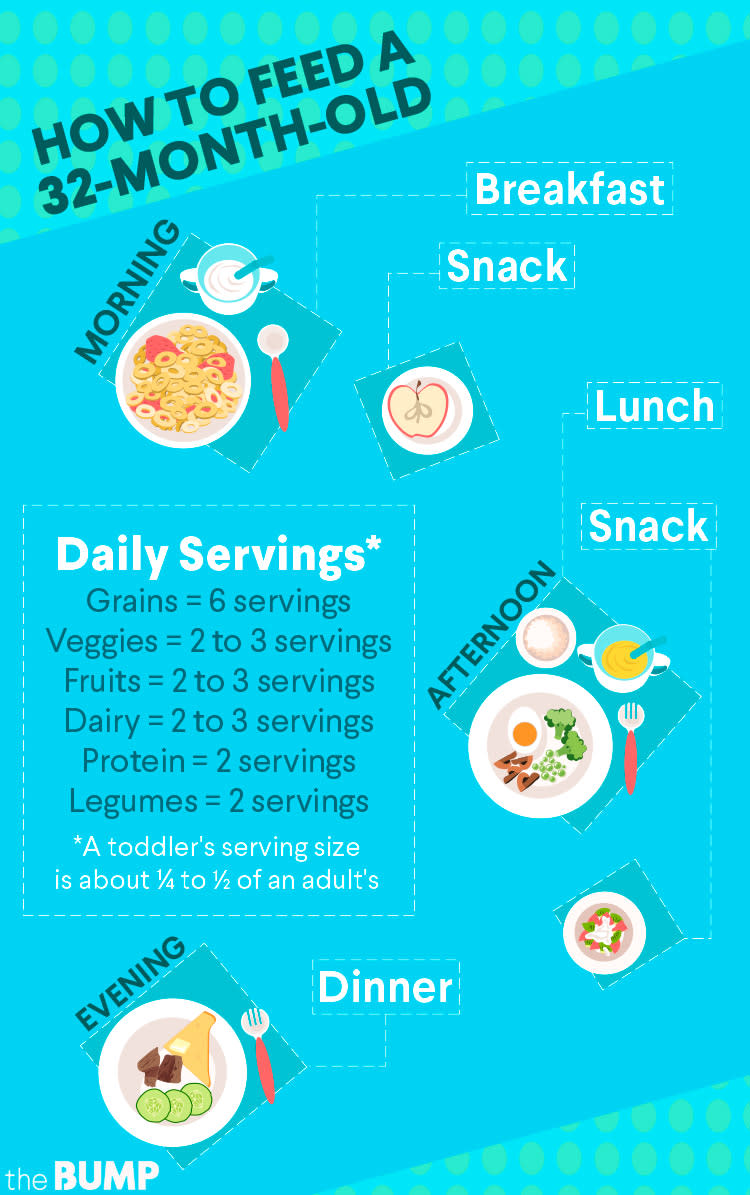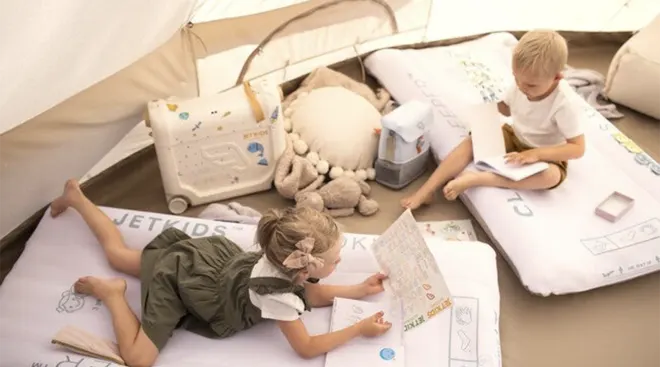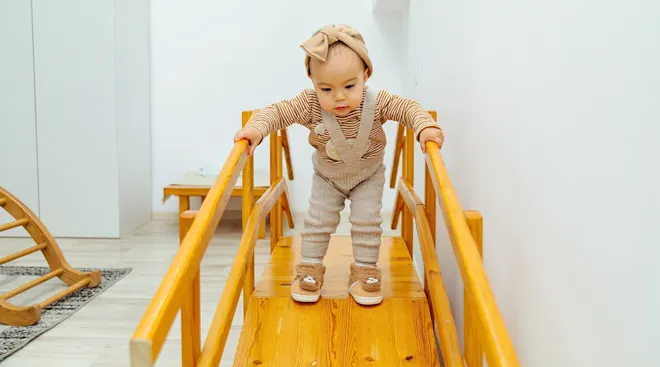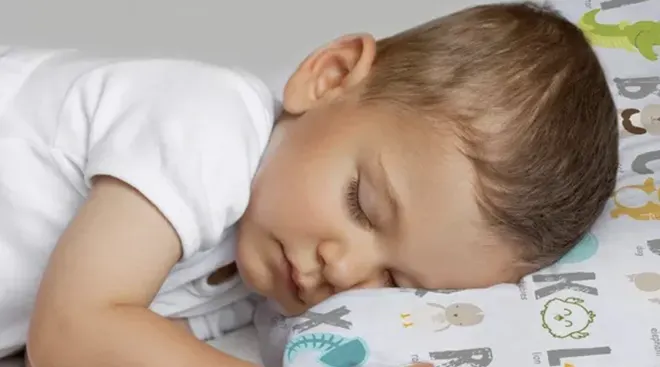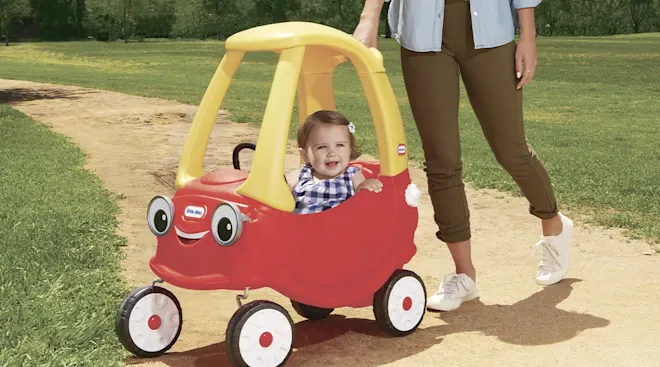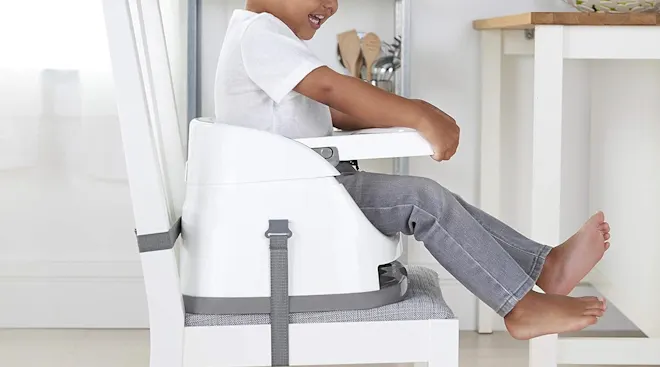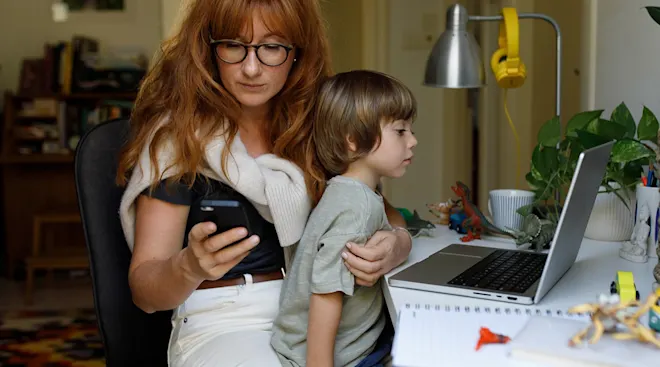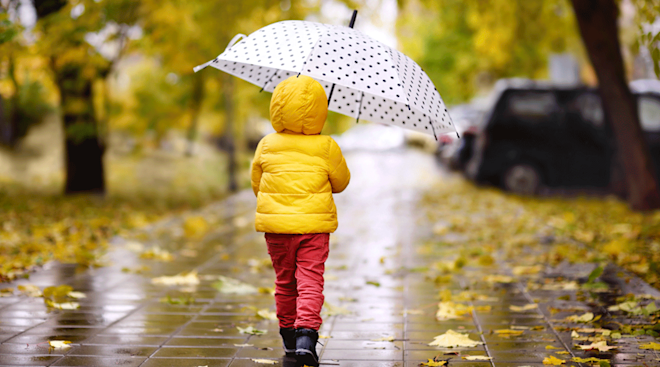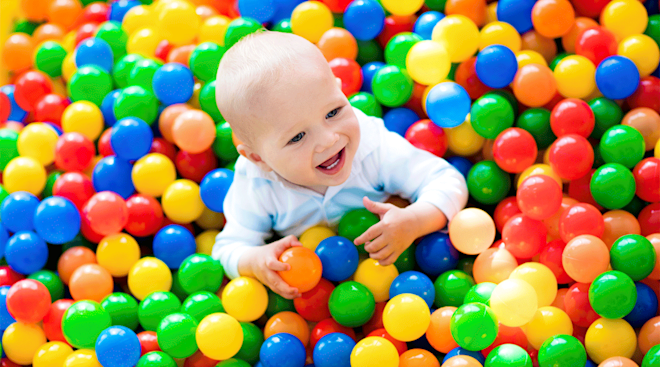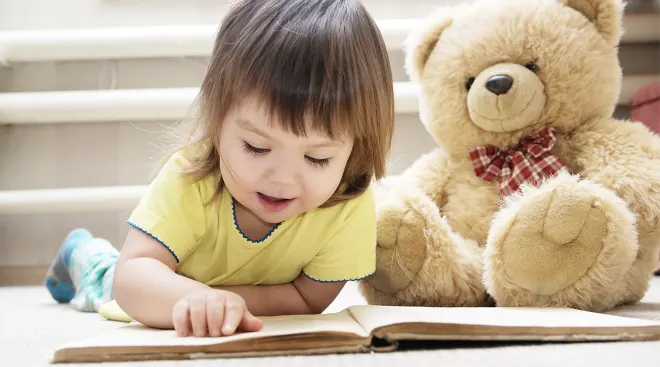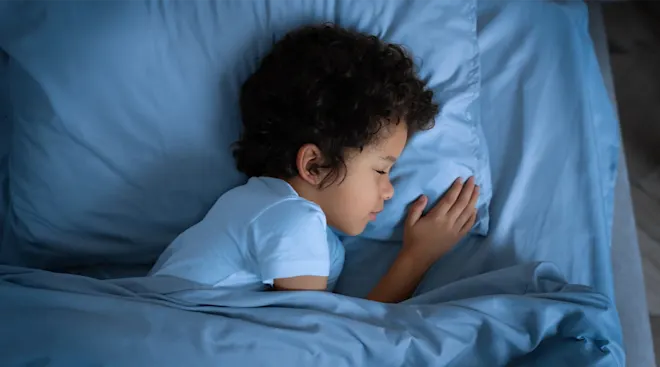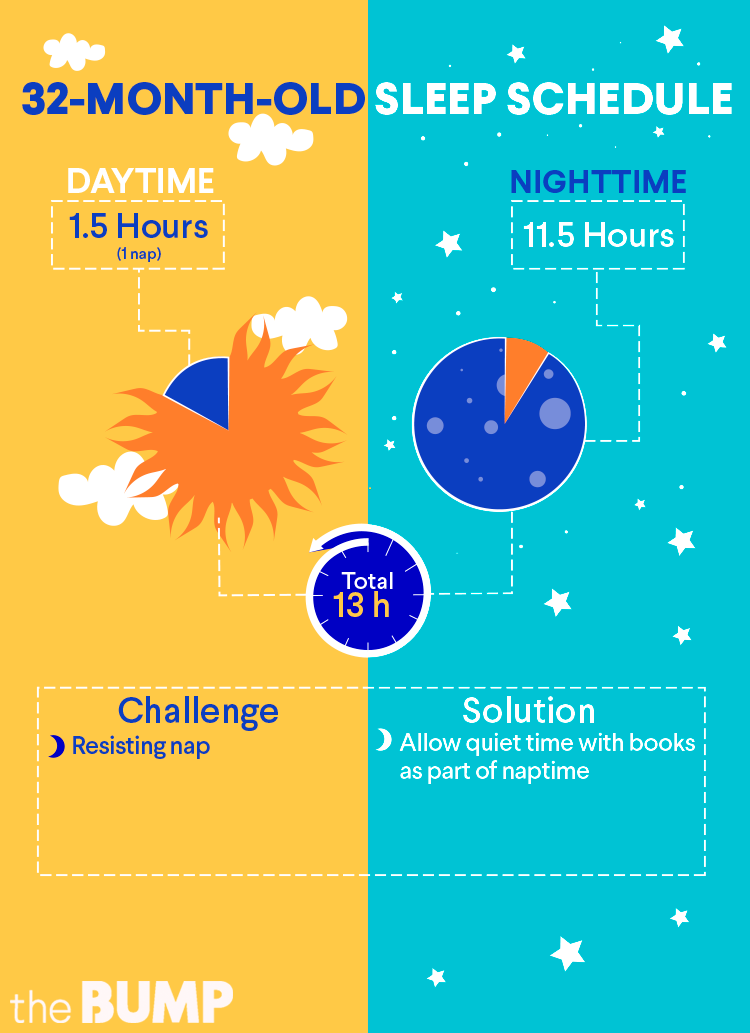You’ve got a walking, talking, very opinionated 32-month-old on your hands, and what could be better? Your toddler is likely making friends, working on potty training and maybe even learning to ride a tricycle. You may also notice sleep resistance, bad manners and picky eating at this stage. Don’t worry—this is totally normal for a budding 32-month-old baby.
To help you understand what to expect and how to handle certain situations, keep reading for tips, tricks and advice on how to navigate life with a 32-month-old. We discuss what 32-month-old milestones you should be looking out for and what kind of new behaviors you might begin noticing. Follow along so you won’t be caught off guard this month!
In addition to potty training, there are a bunch of other milestones and skills your growing child is working on this month.
32-month-old weight and height
Average weight for a 32-month old is around 29.4 pounds for girls and 30.5 pounds for boys. Average height is around 36.1 inches for girls and 36.5 inches for boys, according to the US Centers for Disease Control and Prevention (CDC).
32-month-old milestones
“What should my 32-month-old be doing?” you ask? There is so much to look forward to during this stage. You can expect your toddler to hit some of these 32-month-old milestones around this time:
- Speech. Thirty-two-month-old speech development is happening fast. Your child may be using pronouns correctly and understands how to follow directions with multiple steps.
- Motor skills. Kids this age are getting good at walking up and down stairs. Your child may be able to draw a shape or two, put together a simple puzzle, jump and pedal a trike.
- Teething. You may be experiencing your kid's last bout of teething, with the 2-year molars making their appearance around this age.
- Potty training. If you haven't started potty training your 32-month-old, now might be the time. In a study, researchers found that the number one factor that affected potty training success was starting between 27 and 32 months (aka now). Obviously, every child is different, but kids older than yours tend to be more resistant to the process.
32-month-old behavior
- Bad manners. Sharing and being polite might still be tough for a kid this age, but keep using “please” and “thank you” in conversation, and talking up the concept of taking turns. Be patient—they'll get it in time.
- Friendship. A 32-month-old tends to be really interested in other kids, and may have started making friends.
- Shyness. Feeling intimidated or sensitive in social situations is normal in a 2-year-old. For some kids, it's simply part of their personality. Even if you're a social butterfly, show your shy child empathy, and help them get accustomed to unfamiliar environments. Avoid labeling your kid as "shy"—it's something they may simply outgrow, and you don't want to make them start to believe it.
Health is always a top concern for parents, and this age is no different. Some common health questions parents of 32-month-olds have are:
- My 32-month-old has diarrhea. What should I do?
- My 32-month-old is constipated. What should I do?
- My 32-month-old is throwing up. What should I do?
- My 32-month old has a cough. What should I do?
- My 32-month-old has a fever. What should I do?
Calcium, iron and fiber are a few nutrients toddlers tend not to get enough of. Experiment with different foods that deliver them—such as broccoli, spinach, dark meat turkey, raisins and pinto beans—to see which your child enjoys.
How much should my 32-month-old be eating?
Two-year-olds should continue to eat three meals per day, plus one or two snacks. Offer a variety of foods in all food groups—vegetables, fruits, grains, protein and dairy—daily. Portion size isn't big at this age: Expect your kid to eat only ¼ to ½ as much as an adult.
Your 2-year-old should be drinking 1 percent or skim milk (not whole milk). Try to offer low-fat dairy products too, such as yogurt and cheese. Doctors recommend kids ages one to 3 get 700 mg of calcium per day. Fat should account for less than 30 percent of your toddler's daily calories.
What to feed my 32-month-old
Looking for some tasty and nutritious meal inspiration? Check out these food ideas for a 2-year-old:
32-Month-Old Feeding Schedule
32-month-old eating problems
Can a 2-year-old have a feeding disorder? Yes, it's possible. While picky eating is typical for this age, there are a few behaviors that fall into the category of a feeding disorder. For a variety of reasons—food aversions or refusing to eat, for example—these kids may not eat enough to gain weight at a healthy rate or may even lose weight.
Feeding disorders are more common among kids who have developmental delays, but they can happen with any child. If you suspect your child has a feeding disorder, get an evaluation from your pediatrician. They may refer your child to a dietician, a psychiatrist or psychologist, a speech language pathologist, an occupational therapist or all of the above.
To nap or not to nap? Most 32-month-olds still need an afternoon nap to help them get through the day. Just make sure it's early enough and short enough that it doesn't interfere with their ability to get sleepy at bedtime.
How much sleep does a 32-month-old need?
Most 2-year-olds need around 11 to 12 hours of nighttime sleep, plus a nap of about 1.5 to 3 hours, for a total of about 13 to 14 hours of sleep per day.
32-month-old sleep schedule
Every kid is different, but your child's schedule may look something like this:
32-month-old sleep problems
Some 32-month-olds resist nap time, but if your kid still gets grumpy if they don't get daytime rest, then they still need it. Enforce nap time at the same time every afternoon. If your toddler refuses to sleep, you might want to tell them they don't have to, but they do need to stay in their room for a short period of quiet time. Some parents find that their child falls asleep anyhow. Others are just happy to give their tot a short break during the day.
For a 32-month-old, playtime equals learning time, so make sure your child has plenty of opportunities to use their imagination and motor skills (away from the tablet or TV screen). So what to do with a 32-month-old? Some fun activities, games and toys for a 32-month-old include:
- Rhyming. Choose books that rhyme, or sing songs and say nursery rhymes and poems together. This helps your child increase their vocabulary and learn rhythm—not to mention, they're a lot of fun!
- Pretend play. Thirty-two-month-olds tend to love to dress up in costumes, or mimic their parents by talking into a play phone, wearing your shoes or sweeping the floor.
- Free play. Structured activities, like a trip to the playground or the aquarium, are certainly fun, but don't feel like your 32-month-old needs to be scheduled every second. Set aside time where your child can bang on pots and pans with wooden spoons, "camp" in a cardboard box, or race their toy cars across the living room floor—whatever it is they want to do.
- This may be the moment you’ve been waiting for, or maybe it’s the one you’re dreading: Potty training. Most kids are ready to begin toilet training sometime between the ages of 2 and 3. If your child can stay dry for a couple of hours, lets you know when their diaper is wet or soiled or shows an interest in using the potty, they're probably ready. Keep the motivation positive and pressure-free. Kids this age learn best by example, so take them into the bathroom with you when you go (if you feel comfortable with that). Even better? Point out older friends or siblings who use the potty, and talk it up!
- Believe us, you do not want to flush standard baby wipes (unless you really like plunging your toilet). Instead, get your potty-training kid's bum clean with a wipe that clearly says “flushable” on the label.
- A hectic schedule isn't good for your 32-month-old, and it isn't good for you either. Set aside "me time" to decompress and enjoy some quality time with your family by saying "no" to unnecessary pastimes or activities. And consider hiring a sitter here and there to avoid burnout.
- As tempting as it may be, avoid putting your 32-month-old baby in front of a tablet or TV screen for extended periods of time. Experts recommend less than one hour of screen time per day for toddlers between the ages of 2 and 3.
- Physical activity is more important than ever right now. Not only does it help your toddler burn off energy, but it can promote coordination, balance and control of speed. Play a round of “Follow the Leader,” toss a ball around, dance to music and climb on play structures together to keep your kiddo moving.
- Is your bedtime becoming a daily struggle? Keep things simple. Toddlers love routine, so stick with a simple daily schedule like taking a bath, putting on pajamas and reading a book. A 32-month-old will have an easier time winding down if they know what to expect each evening.
- Acting out is a common behavior among toddlers at this age, but that doesn’t mean you shouldn’t address it. Acknowledge your child’s feelings, but don’t condone their behavior or give into their demands. Once your 32-month-old baby realizes they won’t get a rise out of you or achieve their goal, they’ll eventually stop the bad behavior. It might not magically disappear overnight, but remain strong and don’t give in—you’ll eventually notice a difference.
- If you haven’t already done so, schedule your toddler’s 3-year checkup with their pediatrician.
Between the adventures of potty training and the excitement of watching your 32-month-old make their first friends, this is certainly a memorable stage in your toddler’s life. And before you know it, you’re going to have a 3-year-old running around your home!
Please note: The Bump and the materials and information it contains are not intended to, and do not constitute, medical or other health advice or diagnosis and should not be used as such. You should always consult with a qualified physician or health professional about your specific circumstances.
Navigate forward to interact with the calendar and select a date. Press the question mark key to get the keyboard shortcuts for changing dates.
































